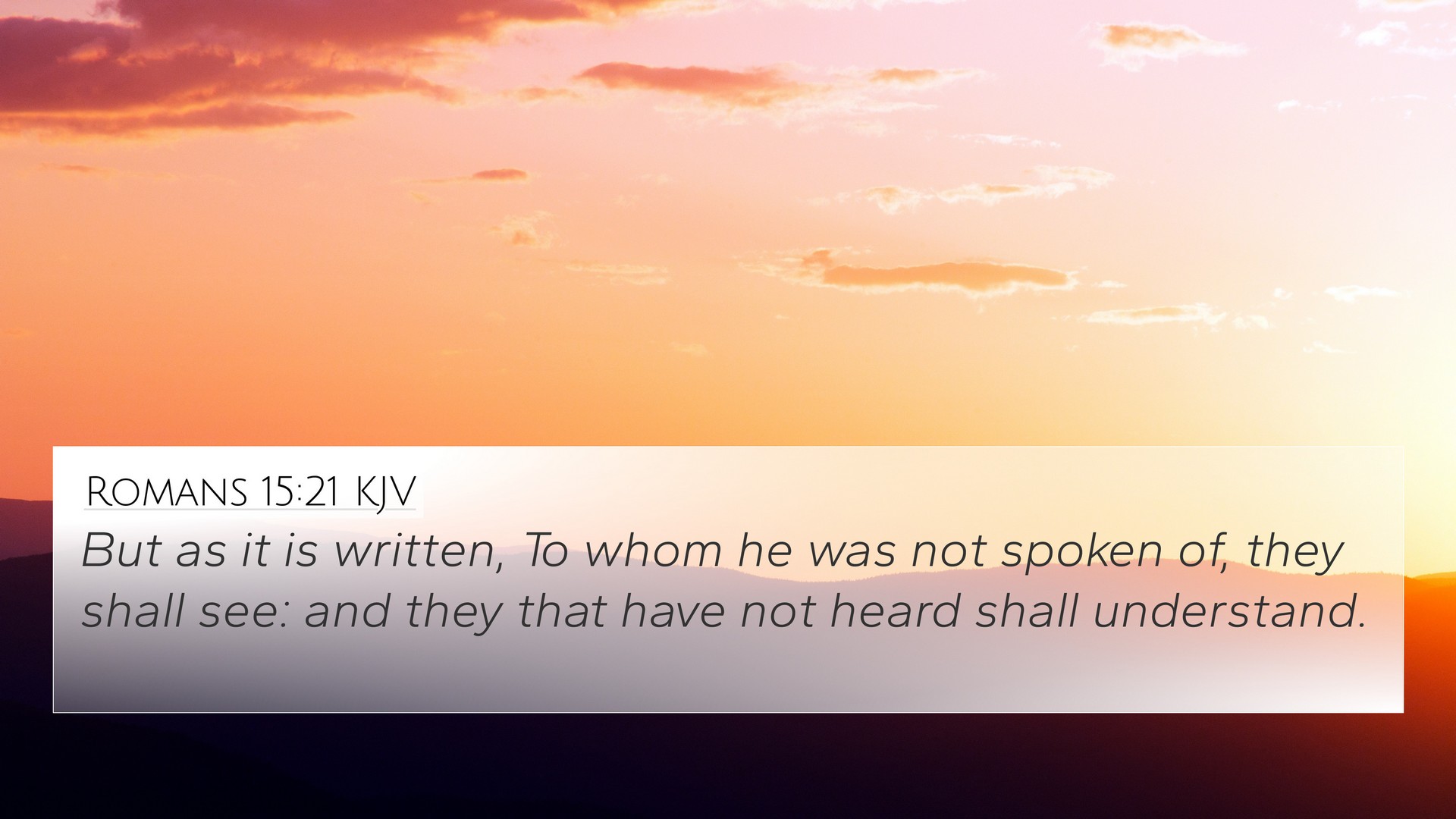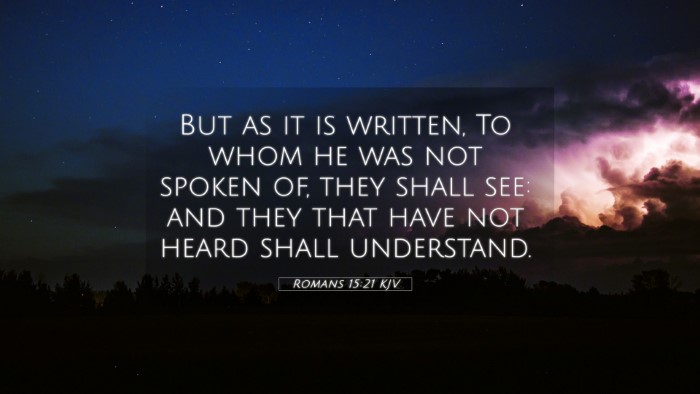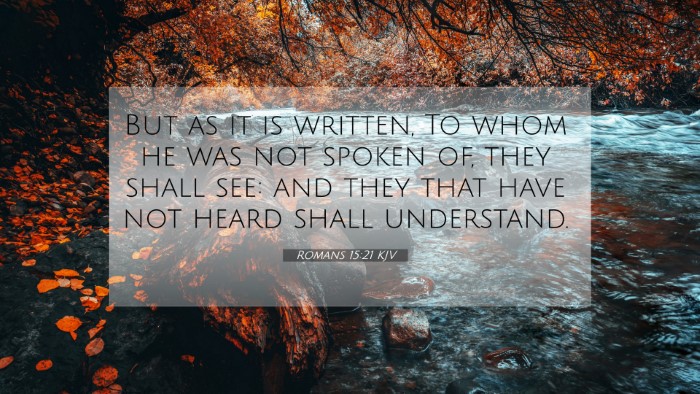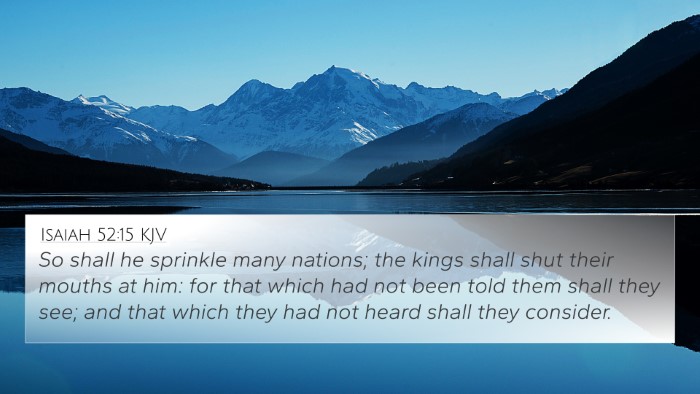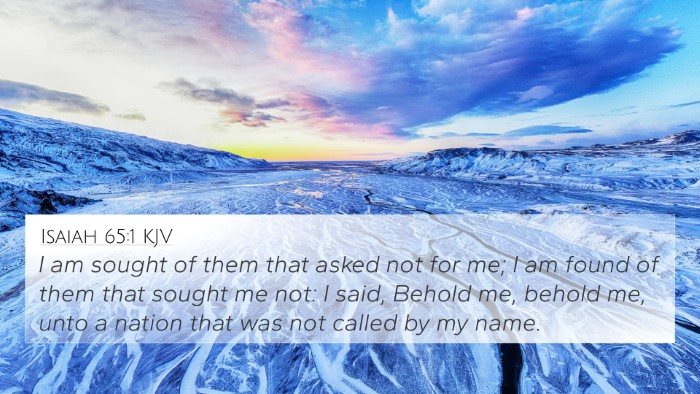Understanding Romans 15:21
Verse Citation: Romans 15:21 - "But as it is written, To whom he was not spoken of, they shall see: and they that have not heard shall understand."
Summary of Meaning
Romans 15:21 articulates Paul’s mission and the fulfillment of prophecy regarding the Gentiles’ reception of the gospel. It signifies a transition from the Jewish people, who were the original recipients of God’s messages, to the broader audience of Gentiles. Paul’s reference implies a deep connection between the Old Testament prophecies and the New Testament church’s expansion.
Insights from Commentators
-
Matthew Henry:
Henry emphasizes that Paul recognizes his ministry's divine calling to reach others outside of the Jewish heritage. This indicates that God's message transcends cultural and historical boundaries. The prophecy quoted underlines the inclusivity of God’s covenant, promising that those who had not previously received the word would now understand it.
-
Albert Barnes:
Barnes notes that the verse highlights the significance of preaching to those who had not yet been instructed in God’s ways. He points out that this missionary zeal fulfills Scripture and demonstrates a divine plan wherein the gospel is made accessible to all nations, fulfilling Jesus' great commission.
-
Adam Clarke:
Clarke’s analysis suggests that Paul’s mission aligns with the prophetic words of Isaiah, confirming the role of Jesus as a light to the Gentiles. Clarke points out the importance of understanding one's audience, as those who have not heard the message must be reached for God's prophecy to manifest.
Thematic Connections
This verse not only stands alone but connects deeply with various themes found throughout Scripture, notably the inclusion of the Gentiles in God's salvation plan. Here are some biblical cross-references that resonate with this verse:
- Isaiah 52:15: “So shall he sprinkle many nations; the kings shall shut their mouths at him: for that which had not been told them shall they see; and that which they had not heard shall they consider.”
- Luke 2:32: “A light to lighten the Gentiles, and the glory of thy people Israel.”
- Matthew 28:19: “Go ye therefore, and teach all nations, baptizing them in the name of the Father, and of the Son, and of the Holy Ghost.”
- Galatians 3:28: “There is neither Jew nor Greek, neither bond nor free, neither male nor female: for ye are all one in Christ Jesus.”
- Acts 13:47: “For so hath the Lord commanded us, saying, I have set thee to be a light of the Gentiles, that thou shouldest be for salvation unto the ends of the earth.”
- Romans 11:11: “I say then, Have they stumbled that they should fall? God forbid: but rather through their fall salvation is come unto the Gentiles, for to provoke them to jealousy.”
- 1 Peter 2:9: “But ye are a chosen generation, a royal priesthood, an holy nation, a peculiar people; that ye should show forth the praises of him who hath called you out of darkness into his marvelous light.”
Inter-Biblical Dialogue
The verse forms significant connections between the Old Testament and New Testament, underscoring the dialogue that exists within the Scriptures. Such cross-referencing opens avenues to understand God’s consistent message about salvation and the accessibility of His grace for all humanity. It invites readers to explore:
- Identifying connections between Old and New Testament, particularly regarding prophecy.
- The theme of God's revelation to all nations as seen in various prophetic books.
- Links between the Prophets and Apostolic teachings regarding the role of Jesus.
Conclusion
Romans 15:21 serves as a pivotal verse illustrating the inclusive nature of the gospel and the fulfillment of God’s promises. Through an understanding of its connections to biblical prophecies and the mission of apostles, believers can appreciate the depth of God's salvation plan. This verse, along with its relevant cross-references, reinforces the importance of gathering all of humanity under Christ’s banner, showcasing God's unwavering commitment to reaching every corner of the earth.
